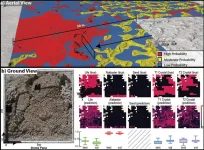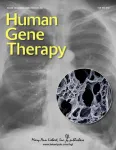(Press-News.org) Intermittent fasting, especially when done over the course of decades, can have positive effects on metabolic and cardiovascular health. Now, a new study by researchers at Intermountain Health in Salt Lake City finds that it may also add an extra layer of protection from heart-related COVID-19 complications in people who had already sought cardiac care.
“We already know that regular fasting over long periods of time can lead to overall health improvements. Here we found that it may also lead to better outcomes in COVID-19 patients who required a cardiac catheterization,” said Benjamin Horne, PhD, director of cardiovascular and genetic epidemiology at the Intermountain Health. “Fasting won’t necessarily stop a cardiac event from happening, but it may prevent someone from developing heart failure after.”
In the study, Intermountain researchers examined patients who enrolled in the INSPIRE registry, a voluntary registry at Intermountain Health, who were also undergoing cardiac catheterization from February 2013 to March 2020.
Of that group, 464 patients had been diagnosed with COVID-19 between March 6, 2020, and April 8, 2022, of those, 135 reported that they fasted routinely — on average for 42.7 years.
Researchers found that those who practiced regular fasting had a lower rate of heart failure-related hospitalization, complications, and death than COVID-19 positive patients in the study who did not fast.
Researchers presented results of the study at the American College of Cardiology / World Heart Federation national conference in New Orleans on March 6.
“These results show that long-term, low-frequency fasting can help prevent heart failure, even in patients who have both COVID-19 and heart problems already,” Dr. Horne said.
Intermountain Health heart and vascular clinicians have had the opportunity to closely study this specific cohort of long-time fasters because a large portion of its patients fast regularly for religious reasons.
Nearly 62 percent of Utah’s population belongs to the Church of Jesus Christ of Latter-day Saints, whose members typically fast the first Sunday of the month by going without food or drink for two consecutive meals.
As such, Dr. Horne stressed that study participants aren’t patients who are fasting as part of a fad diet. The shortest period of time a participant had been fasting was seven years; the longest, 82.
Dr. Horne said that more research is needed to understand why intermittent fasting is associated with better COVID-19 outcomes in patients already being treated for heart conditions, but said it’s most likely due to a host of ways that it affects the body.
For example, fasting reduces inflammation, especially since hyperinflammation is associated with poor COVID-19 outcomes. In addition, after 12 to 14 hours of fasting, the body switches from using glucose in the blood to ketones, which can improve heart function.
Another potential benefit is that intermittent fasting promotes autophagy, which is “the body’s recycling system that helps your body destroy and recycle damaged and infected cells,” he said.
Dr. Horne stressed that anyone who wants to consider starting a new fasting practice should consult their doctors first, especially if they are elderly, pregnant, or have conditions like diabetes, heart or kidney disease.
###
END
New evidence released today from a study of 31,245 patients already taking statin therapy indicates that inflammation may be a more powerful predictor of risk of future cardiovascular events—such as heart attack and stroke — than “bad” cholesterol. Treatments that aggressively lower vascular inflammation need to be incorporated into daily practice if doctors are to maximize patient outcomes, according to the study’s corresponding author, Paul Ridker, MD, a preventive cardiologist at Brigham and Women’s Hospital, a founding member of the Mass General ...
The emergence of new COVID-19 variants has led to reduced accuracy across current rapid testing methods, but a recent University of Michigan study suggests that a patient’s breath might hold the key to a more precise diagnosis.
Investigators from the University of Michigan’s Max Harry Weil Institute for Critical Care Research and Innovation, including faculty and students from the College of Engineering and Michigan Medicine, used portable gas chromatography to examine breath samples collected during the pandemic’s Delta ...
In a survey of 545,531 people, 8.5% of those who said they were ‘fully accepting’ of gay people did not want gay neighbors.
First study to explore stigmatizing behaviors expressed by avid supporters of sexual minorities
‘Simple legal inclusion can help mobilize the accepting population to their fullest potential’
CHICAGO --- When legal systems choose to offer no protections to sexual minorities, even avid LGBTQ supporters would reject their gay neighbors, reports a new Northwestern Medicine study.
The study examined ...
Scientists find that a tubular nanomaterial of carbon makes for ideal host to keep quantum bits spinning in place for use in quantum information technologies.
Scientists are vigorously competing to transform the counterintuitive discoveries about the quantum realm from a century past into technologies of the future. The building block in these technologies is the quantum bit, or qubit. Several different kinds are under development, including ones that use defects within the symmetrical structures of diamond and silicon. They may one day transform computing, accelerate drug discovery, generate unhackable networks and more.
Working with researchers from several universities, scientists ...
INDIANAPOLIS -- LOINC® from Regenstrief Institute is issuing its semi-annual release, which contains 608 new concepts to help health systems, laboratories and other health organizations accurately exchange medical data. Some of the new information has been released in coordination with the U.S. Food and Drug Administration, the U.S. Centers for Disease Control and Prevention and the Association of Public Health Laboratories.
“Aligning the release of LOINC with emerging healthcare trends is an important component of our mission and critical in promoting effective health information exchange among providers, patients and health systems,” said Marjorie Rallins, ...
New research pinpoints a key cause of metastasis from an aggressive form of brain cancer in children and provides a potential new therapy for treating these tumors in the future.
In a paper, published in Nature Cell Biology, physician-scientists from the University of Pittsburgh and UPMC Children’s Hospital of Pittsburgh discovered that medulloblastomas hijack a skill that normal brain cells use during their early development and then manipulate it to help tumors spread.
“Children with medulloblastomas that have not yet metastasized may have a high likelihood of long-term survival, but if ...
March 6, 2023, Mountain View, CA – Wouldn’t finding life on other worlds be easier if we knew exactly where to look? Researchers have limited opportunities to collect samples on Mars or elsewhere or access remote sensing instruments when hunting for life beyond Earth. In a paper published in Nature Astronomy, an interdisciplinary study led by SETI Institute Senior Research Scientist Kim Warren-Rhodes, mapped the sparse life hidden away in salt domes, rocks and crystals at Salar de Pajonales at the boundary of the Chilean Atacama Desert and Altiplano. Then they trained a machine learning model to recognize the patterns and rules associated with their distributions ...
Boulder, Colo., USA: Oklahoma State University is hosting the 57th annual meeting of the Geological Society of America’s South-Central Section on 13–14 March. The meeting will have a diverse program of workshops, technical sessions, short courses, and field trips that covers a spectrum of geologic disciplines.
The list below highlights a selection of environmental-related session topics you might like:
· Tar Creek Superfund Site Field Trip (Field Trip)
Managed Aquifer Recharge in the Arbuckle Simpson Aquifer (Field Trip)
Geoscience Career Workshop: Career Planning and Networking
· Hydrogeologic Challenges and Roles ...
Pancreatic cancer is an incurable form of cancer, and gene therapies are currently in clinical testing to treat this deadly disease. A comprehensive review of the gene and cell biotherapies in development to combat pancreatic cancer is published in the peer-reviewed journal Human Gene Therapy. Click here to read the article now
The article titled “Pancreatic Cancer Cell and Gene Biotherapies: Past, Present and Future,” contributed by corresponding author Pierre Cordelier, from the University of Toulouse, and coauthors, ...
“In the last several years, the Hemoglobin, Albumin, Lymphocyte, Platelet Score (HALP) has emerged in the literature as a new prognostic biomarker [...]”
BUFFALO, NY- March 6, 2023 – A new review paper was published in Oncotarget's Volume 14 on February 25, 2023, entitled, “What is hemoglobin, albumin, lymphocyte, platelet (HALP) score? A comprehensive literature review of HALP’s prognostic ability in different cancer types.”
Since its inception, the Hemoglobin, Albumin, Lymphocyte, Platelet (HALP) Score has gained attention as a new prognostic biomarker to predict several clinical outcomes in a multitude ...





